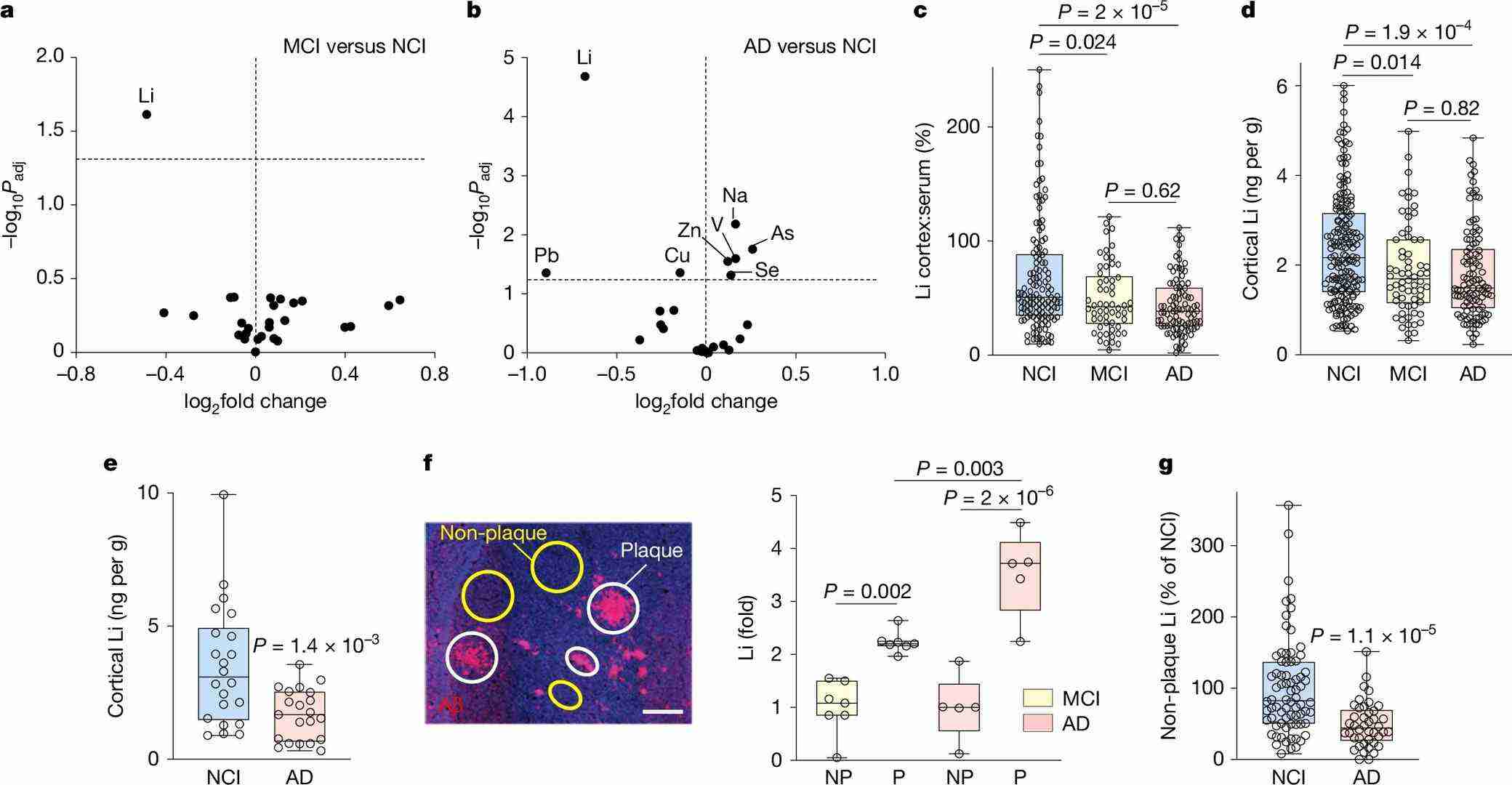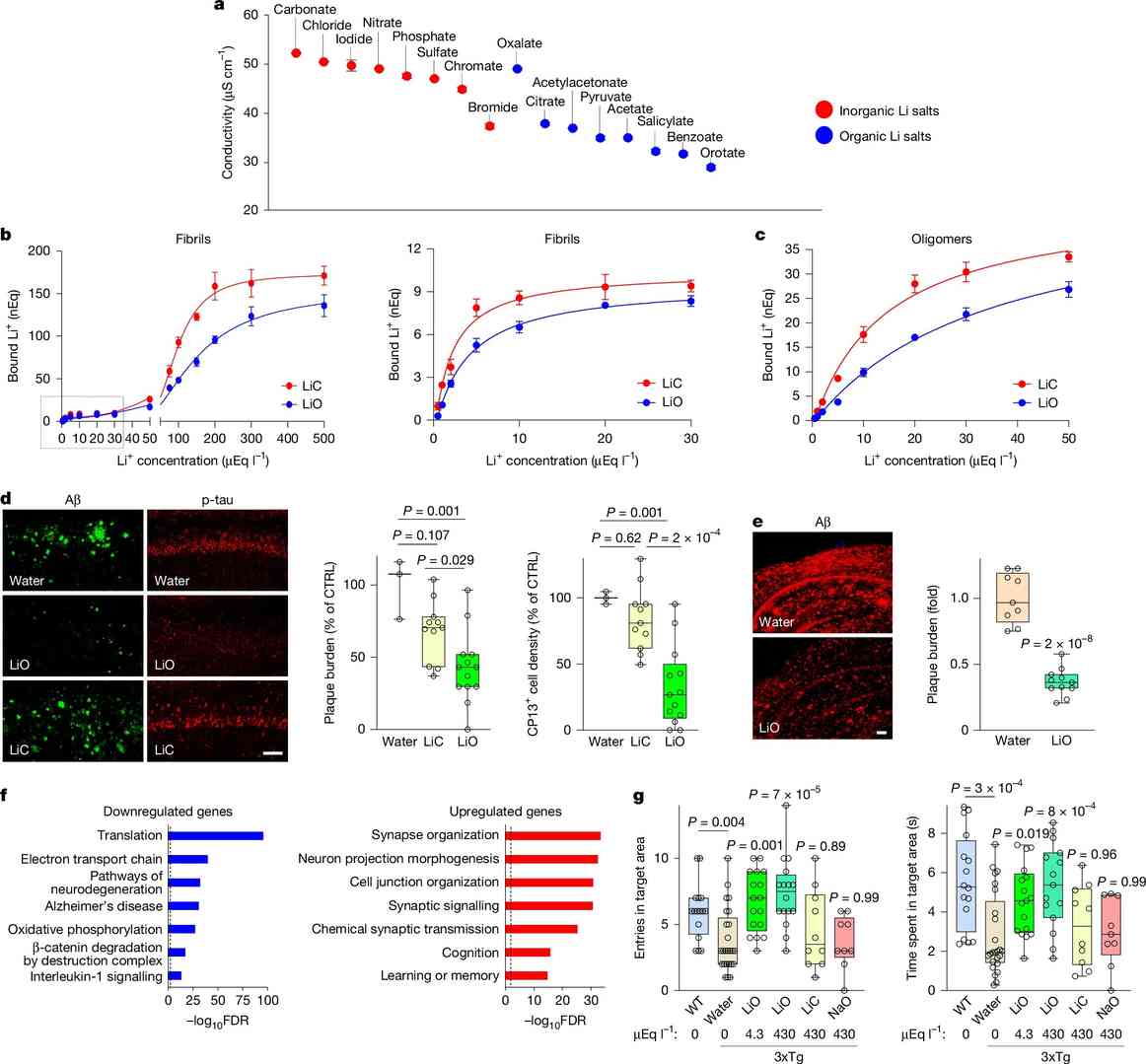Unlocking the Key to Alzheimer's? The Surprising Role of Lithium in Prevention and Treatment!
Alzheimer's disease (AD) is a neurodegenerative disorder characterized by symptoms such as cognitive decline, memory loss, and behavioral changes. With increasing life expectancy and an aging population, the incidence of AD continues to rise, becoming a major health challenge affecting the quality of life of the elderly.
Previous AD research has primarily focused on the two pathological hallmarks of the disease: beta-amyloid (Aβ) deposits and tau protein tangles. However, as more analytical findings emerge, scientists are raising new questions: Why do some people, despite exhibiting typical brain pathology, avoid cognitive decline and develop AD throughout their lives? What key, yet undiscovered, changes occur in the early stages of AD?
In the latest issue of Nature, researchers from Harvard Medical School offer new insights into these questions. They have discovered that the trace element lithium plays a key physiological role in the brain. Lithium deficiency is not only an early trigger of Alzheimer's disease but also accelerates brain pathology and memory loss. Furthermore, researchers found that timely lithium supplementation significantly reversed the progression of AD in mice and restored memory, offering a novel approach for AD treatment.
 Fig. 1. Lithium deficiency and the onset of AD.
Fig. 1. Lithium deficiency and the onset of AD.
In the study, the authors analyzed hundreds of brain samples. Using a highly sensitive mass spectrometry technique, they measured trace levels of approximately 30 different metals in samples from cognitively healthy individuals, patients with mild cognitive impairment, and patients with Alzheimer's disease. The results revealed that lithium was the only metal whose levels varied significantly between populations and that changes during the early stages of memory loss: Lithium levels were high in brain samples from healthy individuals, but significantly decreased in patients with mild cognitive impairment or Alzheimer's disease. Subsequent replication of this experiment across multiple sample collections confirmed this trend.
Furthermore, lithium levels varied within different brain regions. In brain regions affected by AD-related pathology, lithium levels were significantly lower than in surrounding brain regions. The researchers suggest that in individuals with mild cognitive impairment, lithium in the brain is trapped and bound by amyloid plaques, preventing it from participating in essential brain functions.
In subsequent experiments, the researchers first selected healthy mice and restricted their dietary lithium intake. Over time, lithium levels in the mice's brains dropped significantly. The mice began to show symptoms of accelerated aging, increased brain inflammation, and weakened synaptic connections.
In the AD mouse model, lithium deprivation further promoted the accumulation of Aβ plaques and the formation of neurofibrillary tangles. At the same time, microglia became inactive and no longer actively cleared Aβ, further driving brain inflammation. The authors found that lithium levels can influence the activity of AD risk genes, including the APOE gene.
 Fig. 2. Therapeutic efficacy of a plaque-evading lithium salt.
Fig. 2. Therapeutic efficacy of a plaque-evading lithium salt.
The researchers suggest that lithium deficiency may be a contributing factor to the development of Alzheimer's disease. This discovery also points to a very simple potential treatment: simply adding lithium orotate to the drinking water of AD mice effectively reduced AD-related disease damage and helped restore memory function. If lithium supplementation is administered promptly and consistently at an early stage, it may even prevent the onset of AD.
However, the researchers emphasized that lithium has not yet been proven safe and effective in preventing human neurodegenerative diseases. Therefore, individuals should not attempt lithium supplementation on their own. Perhaps in the future, when lithium orotate or similar compounds pass the clinical trial stage, a new approach to the prevention and treatment of AD will be possible.
Reference
- Aron, L., Ngian, Z.K., Qiu, C. et al. Lithium deficiency and the onset of Alzheimer's disease. Nature (2025).

Your email address will not be published. Required fields are marked *